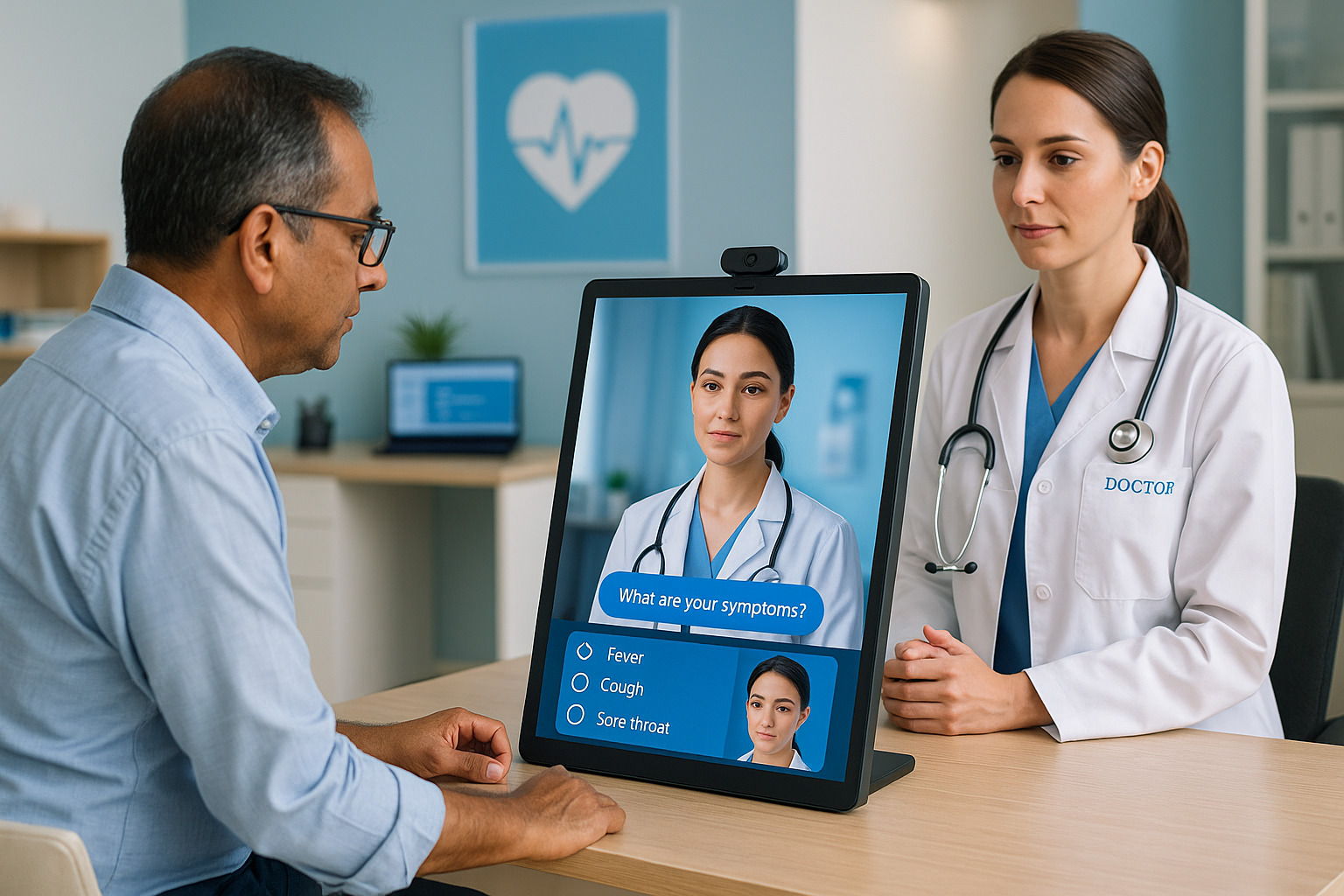Saudi Arabia Launches World’s First AI Medical Clinic: A Leap into the Future of Healthcare
Discover how Saudi Arabia is transforming healthcare with the launch of the world’s first AI medical clinic, featuring Dr. Hua, an autonomous AI doctor.
Introduction
In a groundbreaking move that positions Saudi Arabia at the forefront of medical innovation, the Kingdom has unveiled the world’s first AI-powered medical clinic. This pioneering facility, located in Al-Ahsa, Eastern Province, introduces “Dr. Hua,” an artificial intelligence system capable of autonomously diagnosing and prescribing treatments. This initiative marks a significant stride in integrating advanced technology into healthcare, aligning with Saudi Arabia’s Vision 2030 to diversify its economy and modernize public services.
The Genesis of the AI Medical Clinic
Synyi AI and Almoosa Health Group Collaboration
The AI medical clinic is the result of a strategic partnership between Shanghai-based medical technology company Synyi AI and Saudi Arabia’s Almoosa Health Group. Synyi AI, backed by major investors including Tencent, specializes in natural language processing and AI applications in healthcare. This venture represents Synyi AI’s first international expansion, aiming to revolutionize patient care through artificial intelligence.
Dr. Hua: The AI Doctor
At the heart of the clinic is Dr. Hua, an AI system designed to interact with patients via a tablet interface. Patients describe their symptoms, and Dr. Hua responds with follow-up questions, analyzes medical data and images collected by human assistants, and then proposes a treatment plan. Human doctors oversee the process, reviewing and approving treatment plans to ensure accuracy and safety.
How the AI Clinic Operates
Patient Interaction
Upon entering the clinic, patients engage with Dr. Hua through a user-friendly tablet interface. The AI system conducts a thorough consultation by asking pertinent questions based on the patient’s initial input. It then analyzes relevant medical data, such as cardiograms and X-rays, to formulate a diagnosis.
Diagnosis and Treatment
Dr. Hua is currently capable of diagnosing and treating approximately 30 respiratory conditions, including asthma and bronchitis. The AI system’s recommendations are reviewed by licensed physicians who serve as safety gatekeepers, ensuring that each diagnosis and treatment plan meets established medical standards.
Human Oversight
While Dr. Hua handles routine consultations, human doctors are on standby to intervene in emergencies or complex cases beyond the AI’s current capabilities. This hybrid model ensures that patients receive accurate diagnoses and appropriate care, combining the efficiency of AI with the expertise of medical professionals.
Technological Advancements and Future Plans
Expansion of Medical Capabilities
Synyi AI plans to expand Dr. Hua’s diagnostic capabilities to cover up to 50 conditions, including gastrointestinal and dermatological diseases. This expansion aims to broaden the clinic’s scope and enhance its ability to serve a wider patient population.
Integration with Saudi Arabia’s Healthcare Vision
The AI clinic aligns with Saudi Arabia’s broader efforts to integrate advanced technologies into its healthcare system. The Kingdom has been investing in digital health initiatives, such as the Seha Virtual Hospital, to improve accessibility and efficiency in medical services.
Benefits of AI in Healthcare
Improved Accessibility
AI-powered clinics can significantly enhance healthcare accessibility, particularly in remote or underserved areas. By reducing the need for in-person consultations, these clinics can provide timely medical attention to patients who might otherwise face barriers to care.
Increased Efficiency
The integration of AI in medical diagnostics streamlines the consultation process, allowing for quicker diagnoses and treatment plans. This efficiency can lead to reduced waiting times and improved patient throughput in healthcare facilities.
Enhanced Accuracy
AI systems like Dr. Hua can analyze vast amounts of medical data to identify patterns and make informed decisions. This capability can enhance diagnostic accuracy and reduce the likelihood of human error.
Challenges and Considerations
Ethical and Regulatory Concerns
The deployment of AI in healthcare raises important ethical and regulatory questions, including data privacy, informed consent, and the need for robust oversight mechanisms to ensure patient safety.
Patient Acceptance
The success of AI medical clinics depends on patient acceptance and trust in the technology. Efforts must be made to educate the public about the benefits and limitations of AI in healthcare to foster confidence in these systems.
Conclusion
The launch of the world’s first AI medical clinic in Saudi Arabia marks a significant milestone in the evolution of healthcare. By integrating advanced AI technologies with human oversight, the clinic offers a glimpse into the future of medical diagnostics and treatment. As the Kingdom continues to invest in digital health initiatives, the success of this pilot program could pave the way for broader adoption of AI in healthcare, both regionally and globally.
Call to Action
Stay informed about the latest developments in AI and healthcare by subscribing to our newsletter. Share your thoughts on the integration of AI in medical services and join the conversation about the future of healthcare innovation.
Also read Saudi Arabia related post – Uber to Launch self driving vehicles in Saudi Arabia


0 Comment